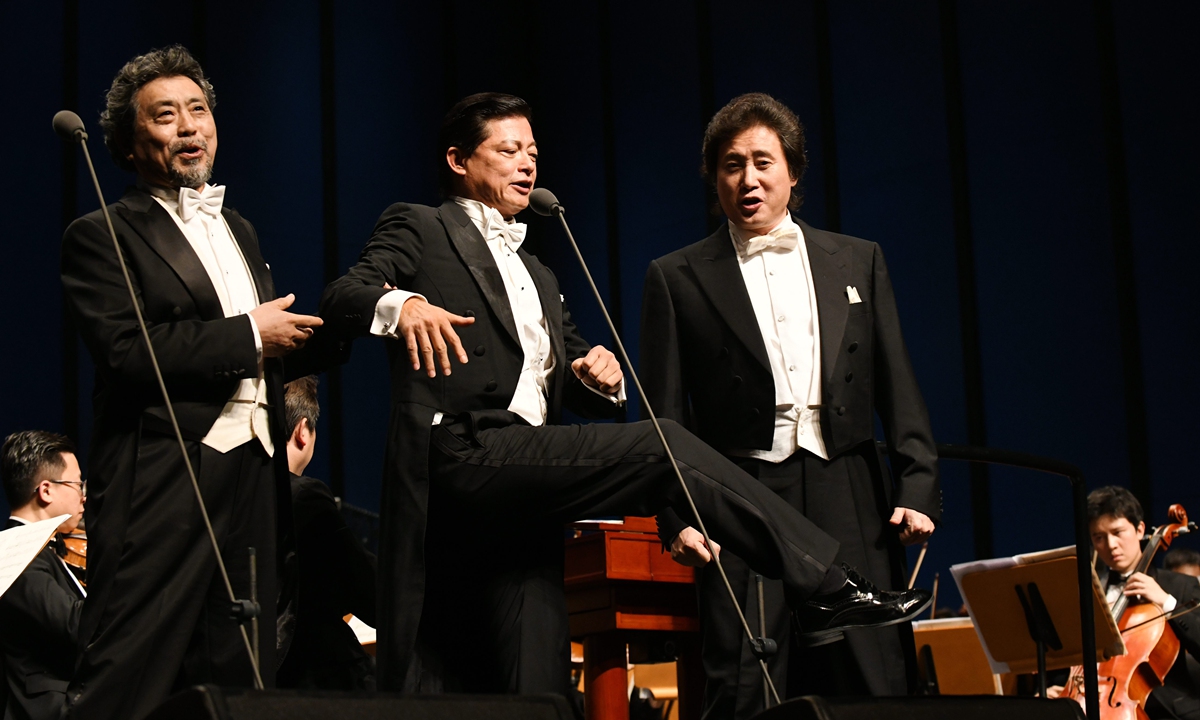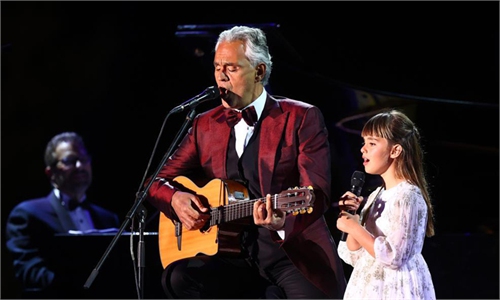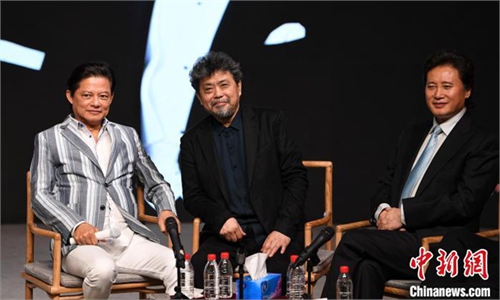ARTS / CULTURE & LEISURE
China’s top tenor taps classic Chinese songs to connect people
Ode to the motherland

From right: China's Top Three Tenors Dai Yuqiang, Warren Mok and Wei Song Photo: VCG
Recalling past decades of globe-trotting performances as an icon of Chinese tenors, Warren Mok picks the spontaneous chorus of a classic ode to the motherland as one of his best moments.It happened in October 2019 at a concert by China's Top Three Tenors, the country's equivalent of the globally acclaimed trio Luciano Pavarotti, Placido Domingo, and Jose Carreras. Mok, together with Dai Yuqiang and Wei Song, put on the show to celebrate the 70th founding anniversary of the People's Republic of China in the metropolis that was being rattled by anti-China riots.
Mok remembered the atmosphere outside was intense - roads around the theater had to be closed by the police to maintain order. Inside, when the trio started presenting the song "Me and My Motherland" as the final encore, they received a full-house chorus that pushed the concert to a climax.
"It is a household song in the mainland, but I didn't expect the Hong Kong audience to sing it spontaneously," Mok said, still feeling the heat of the exciting and touching day.
"When Hong Kong was having its chaotic days, we rose and sang to express patriotism and love for Hong Kong with an ode to the motherland."
Mok knew the power of music well. He was born in Beijing, grew up in Hong Kong, and studied in New York. Since his European debut in 1987 at the Deutsche Oper Berlin, Mok has been making frequent guest appearances in many leading opera houses throughout the world, and his operatic repertoire exceeds 60 roles including Cavaradossi in Tosca, Calaf in Turandot, Rodolfo in La Boheme, Radames in Aida, and many others. His voice was praised by the King of the High C, Pavarotti.
Folk music has been a centerpiece of Mok's performances. For more than a decade, China's Three Tenors have tried to render Chinese folk songs such as "Kangding Love Song" and "Jasmine Flower" with bel canto so that Westerners can better appreciate them.
"In our overseas shows, we began the first half with Western hits to convince the audience of our skills, then we let Chinese folk songs take center stage," Mok said.
"It occurred to the foreign audience that Chinese songs are actually very euphonious, and we often receive standing ovations."
Before Hong Kong's return to the motherland in 1997, Mok returned to the city in 1995 to pivot his career to Asia, especially the Chinese mainland, leveraging his transcultural experience to connect people together.
"Music is very powerful in uniting people. It is one of the best tools to help us better understand the motherland," Mok said.
The national security law in Hong Kong and the improved electoral system have worked to restore stability in Hong Kong, which has opened a new chapter in good governance. Mok said Hong Kong can have a more prosperous cultural sector with the advantages of "one country, two systems."
With the integration of the Guangdong-Hong Kong-Macao Greater Bay Area, Mok expects an operatic bonanza and looks forward to closer cooperation with theaters in this dynamic area of southern China.
The Council of the China National Arts Fund announced in July that it will accept funding applications from Hong Kong and Macao for the year 2022. As of the top-level design, the 14th Five-Year Plan (2021-25) supports Hong Kong in developing into a hub for arts and cultural exchanges between China and the rest of the world.
Recently, Opera Hong Kong joined the Slovene National Theater Maribor in presenting Madama Butterfly, which is regarded as Italian composer Giacomo Puccini's most melodious opera and a perfect amalgam of Eastern culture and traditional Western opera, with Mok being the producer.
Singers with 10 different nationalities gathered in the hub to tell the heart-wrenching love story, in what Mok called the latest example of Hong Kong's preferential role.
"Music knows no borders. I hope the COVID-19 pandemic could end as soon as possible so that we can go to more countries and sing Chinese culture to the world," he said.


